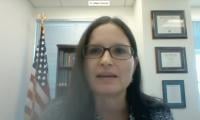Anti-apartheid struggle
When Nelson Mandela was freed from his Robben Island prison on February 11, 1991, my family, friends and neighbors followed the event with keen interest as they gathered in the living room of my old home in the Nuseirat Refugee Camp in the Gaza Strip.
This emotional event took place years before Mandela uttered his famous quote “our freedom is incomplete without the freedom of the Palestinians”. For us Palestinians Mandela did not need to reaffirm the South African people’s solidarity with Palestine by using these words or any other combination of words. We already knew. Emotions ran high on that day; tears were shed; supplications were made to Allah that Palestine, too, would be free soon. “Inshallah,” God willing, everyone in the room murmured with unprecedented optimism.
Though three decades have passed without that coveted freedom, something is finally changing as far as the Palestine liberation movement is concerned. A whole generation of Palestinian activists, who either grew up or were even born after Mandela’s release, was influenced by that significant moment: Mandela’s release and the start of the official dismantling of the racist, apartheid regime of South Africa.
Even the signing of the Oslo Accords in 1993 between Israel and some in the Palestinian leadership of the PLO – which served as a major disruption of the grassroots, people-oriented liberation movement in Palestine – did not completely end what eventually became a decided anti-Israeli apartheid struggle in Palestine. Oslo, the so-called ‘peace process’ – and the disastrous ‘security coordination’ between the Palestinian leadership, exemplified in the Palestinian Authority (PA), and Israel – resulted in derailed Palestinian energies, wasted time, deepened existing factional divides, and confused Palestinian supporters everywhere. However, it did not – though it tried – occupy every political space available for Palestinian expression and mobilization.
With time and, in fact, soon after its formation in 1994, Palestinians began realizing that the PA was not a platform for liberation, but a hindrance to it. A new generation of Palestinians is now attempting to articulate, or refashion, a new discourse for liberation that is based on inclusiveness, grassroots, community-based activism that is backed by a growing global solidarity movement.
The May events of last year – the mass protests throughout occupied Palestine and the subsequent Israeli war on Gaza – highlighted the role of Palestine’s youth who, through elaborate coordination, incessant campaigning and utilizing of social media platforms, managed to present the Palestinian struggle in a new light – bereft of the archaic language of the PA and its aging leaders. It also surpassed, in its collective thinking, the stifling and self-defeating emphasis on factions and self-serving ideologies.
And the world responded in kind. Despite a powerful Israeli propaganda machine, expensive hasbara campaigns and near-total support for Israel by the western government and mainstream media alike, sympathy for Palestinians has reached an all-time high. For example, a major public opinion poll published by Gallup on May 28, 2021, revealed that “… the percentages of Americans viewing (Palestine) favorably and saying they sympathize more with the Palestinians than the Israelis in the conflict inched up to all-time highs this year.”
Moreover, major international human rights organizations, including Israelis, began to finally recognize what their Palestinian colleagues have argued for decades:
“The Israeli regime implements laws, practices and state violence designed to cement the supremacy of one group – Jews – over another – Palestinians,” said B’tselem in January 2021.
“Laws, policies and statements by leading Israeli officials make plain that the objective of maintaining Jewish Israeli control over demographics, political power and land has long guided government policy,” said Human Rights Watch in April 2021.
“This system of apartheid has been built and maintained over decades by successive Israeli governments across all territories they have controlled, regardless of the political party in power at the time,” said Amnesty International on February 1, 2022.
Now that the human rights and legal foundation of recognizing Israeli apartheid is finally falling into place, it is a matter of time before a critical mass of popular support for Palestine’s own anti-apartheid movement follows, pushing politicians everywhere, but especially in the West, to pressure Israel into ending its system of racial discrimination.
Excerpted: ‘The Next Step in Palestine’s Anti-Apartheid Struggle is the Most Difficult’. Courtesy: Counterpunch.org
-
 Meghan Markle’s Family Shares Important News Amid Estrangement
Meghan Markle’s Family Shares Important News Amid Estrangement -
 BAFTA, BBC, And Tourette’s Advocate John Davidson Issue Formal Statements For His Onstage Slur
BAFTA, BBC, And Tourette’s Advocate John Davidson Issue Formal Statements For His Onstage Slur -
 Kanye West's Malibu Beachfront Mansion Enters Controversy Again As Ex-employee Seeks $1M In Alleged Unpaid Wages
Kanye West's Malibu Beachfront Mansion Enters Controversy Again As Ex-employee Seeks $1M In Alleged Unpaid Wages -
 Tom Hanks To Lead Experimental Biopic About Distant Relative Abraham Lincoln
Tom Hanks To Lead Experimental Biopic About Distant Relative Abraham Lincoln -
 'CIA' Starring Tom Ellis Promises Fresh Take Beyond FBI Franchise
'CIA' Starring Tom Ellis Promises Fresh Take Beyond FBI Franchise -
 Congressman Tony Gonzales Faces Resignation Calls Amid Investigation
Congressman Tony Gonzales Faces Resignation Calls Amid Investigation -
 Royal Family Not Allowed To Play THIS Fun Game: ‘It Gets Too Vicious’
Royal Family Not Allowed To Play THIS Fun Game: ‘It Gets Too Vicious’ -
 Heidi Klum Exposes Harsh Modeling Rule She Faced While Expecting
Heidi Klum Exposes Harsh Modeling Rule She Faced While Expecting -
 US Women’s Hockey Team Skips State Of The Union After Gold Medal Win
US Women’s Hockey Team Skips State Of The Union After Gold Medal Win -
 Toronto Weather Forecast: Snow Storm Advisory Lifted After Icy Conditions
Toronto Weather Forecast: Snow Storm Advisory Lifted After Icy Conditions -
 How ‘deafness’ In Andrew Scandal Has Changed Monarchy ‘forever’
How ‘deafness’ In Andrew Scandal Has Changed Monarchy ‘forever’ -
 Gisele Bundchen Drops Postpartum Workout Secret She Calls A 'game Changer'
Gisele Bundchen Drops Postpartum Workout Secret She Calls A 'game Changer' -
 1 In 5 Teens Exposed To Unwanted Sexual Content On Instagram, Report Finds
1 In 5 Teens Exposed To Unwanted Sexual Content On Instagram, Report Finds -
 US Judge Aileen Cannon Issues Permanent Order In Trump Documents Case
US Judge Aileen Cannon Issues Permanent Order In Trump Documents Case -
 King Charles, Royals Are Not ‘bright’ Enough To Live In Mansions
King Charles, Royals Are Not ‘bright’ Enough To Live In Mansions -
 'Final Throw Of The Dice': Paramount Submits Highest Bid Offer To Warner Bros. In Last Round
'Final Throw Of The Dice': Paramount Submits Highest Bid Offer To Warner Bros. In Last Round



